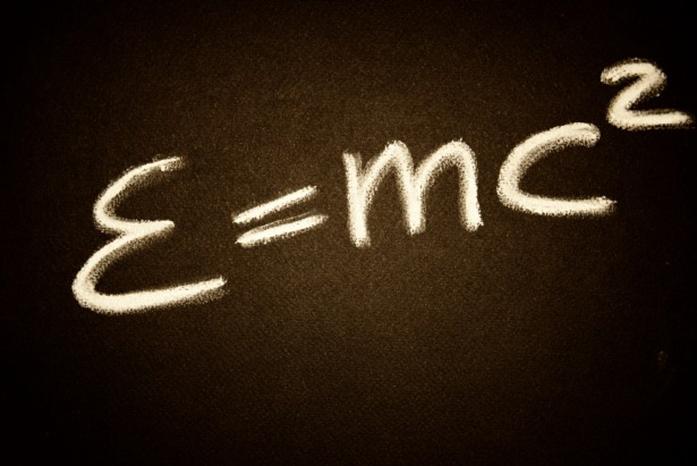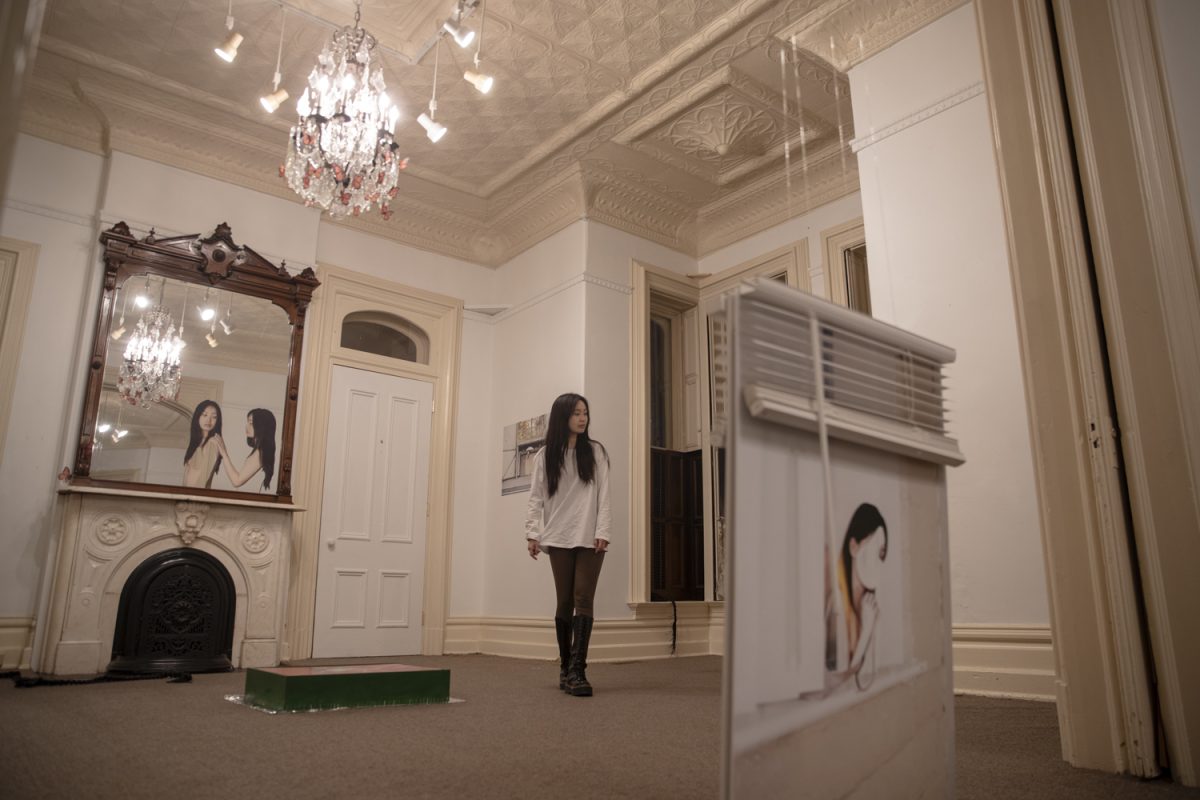By Isaac Hamlet
Our knowledge of science and history tend to react oppositely to the passage of time. As time goes by, the sciences become clearer to us while — as we make new discoveries — the past erodes and fades.
It’s in these gaps and blurred lines of history that Relativity hold its examination of one of the Earth’s greatest scientific minds.
In 1902, Albert Einstein fathered a child, Lieserl, who vanished years later and whose existence didn’t come to light until decades after Einstein’s death.
The new play by Mark St. Germain will open Friday at Riverside Theater, 213 S. Gilbert St., at 7:30 p.m. It follows Einstein as he confronts this missing child.
“The great mystery behind [the play] is that this is a fact that could be false,” said Jim Kern, who plays Einstein in his first Riverside production. “It can’t be proven, but it also can’t be disproven.”
While it’s generally accepted that Lieserl died of scarlet fever in 1903, little is known about what exactly happened to the child.
The story of the play takes place in 1948, set in Einstein’s study at Princeton. While there, he is confronted by a woman calling herself Margaret Harding, a reporter from the Jewish Daily who has come to interview Einstein.
Saffron Henke, who plays Harding, describes what follows as her character “mentally and emotionally sparring with Einstein” to get to the truth of things. A sparing match not for the faint of heart, considering the mind she’s going up against.
“The play is kind of like a human chess game,” Kern said. “This isn’t one of those shows that’s going to have a ton of action or romance, it’s about science. It’s about a choice a great man made.”
Even with Einstein being one of the keenest minds of the past century, Kern has found that the man had a sort of lack of emotional understanding.
He pointed to such famous quotes as, “Two things are infinite: The universe, and human stupidity; and I’m not sure about the universe.”
Despite the character’s emotional distance, though, Kern said “to say that [Einstein] is without emotion is to lie.”
In order to play Einstein, Kern built a foundation for the character, reviewing biographies about the man and viewing the few recordings of him.
“I’m a little taller, a little thinner, my face is a little narrower,” Kern said. “I was set not to do an impression but an interpretation. [Because] it allows me to get into his mind, so I’m not just mimicking his motions and tone. Mimicry is not of interest to me — interpretation is.”
It was important to him that he be able to capture the character in this organic way. Understandable, considering that Henke is on stage for 89 of the 90 minutes making up the show.
“I think the ideas in Relativity will be very stimulating for the audience, and I hope they leave the theater wanting a deeper conversation,” Henke said. “The team working in this show has created a vibrant, supportive environment to bring this challenging material together. I have loved working with everyone on this production.”







